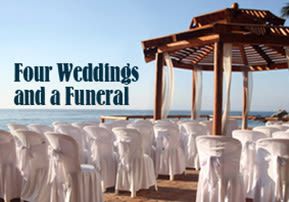
Four Weddings and a Funeral
She wasn’t married 4 times, only once: but in her mind, there was a wedding she wanted to have, a wedding she had, a wedding she should have had, and the ultimate wedding...

Over a decade ago there was a hit movie called “Four Weddings and a Funeral”. Starring Hugh Grant and Andy MacDowell, it was about a group of single friends during the dreaded “wedding season”. I loved that movie. It made me laugh, it made me cry. I really wanted to be Andy MacDowell. Actually, in my heyday I may have been compared to her, in a Jewish kind of way, albeit with an extensive full-body makeover. And although there was no Hugh Grant in my life back then, I married quite a heartthrob – even with his bushy beard and long peyot. Although I NEVER dreamed I would ever admit that …..
Not many young women get to have their Hollywood fantasies come true, but I can honestly say that my life ended up sporting the title of this movie. I too, have gone through Four Weddings and a Funeral, so to speak.
No, I have not been married four times. And, as you can see, I am still very much alive, Baruch Hashem. The weddings I am talking about are as follows:
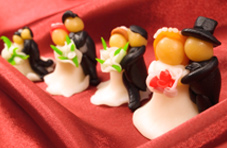 The wedding I wanted to have.
The wedding I wanted to have.
The wedding I had.
The wedding I should have had.
The Ultimate Wedding.
And I’ll fill you in on the Funeral, too, so read on….
Like every young woman, from a certain age we are already masterminding our wedding. For the men who are reading this, there is no need to run and hide, you don’t actually feature in this fantasy. It centers purely round the girls, for now. Our desires, our tastes, THE dress, our dream decor, our multi-course menu, our makeup, award-winning photography, sky-bursting fireworks and entertainment to rival the opening of the Academy Awards. So I was quite ‘ready for marriage’ by the time I met THE ONE. That was the wedding I wanted. Wedding Number One.
And then my husband-to-be started to rediscover his Jewish roots. As he intensified his learning he racked up a steadily increasing number of ultra-orthodox friends and rabbis. These ‘extras’ needed to be accommodated at our wedding with a certain level of kosher certification, table planning and: no mixed dancing. WHAT?! The fight for the dance floor was fierce, resulting in a shaky compromise that put a dent into my disco fantasy. But that didn’t compare to the battle over the mixed seating. HUH?! My mother wouldn’t sit with my father? Wait, what did you say? THE BRIDE DOESN’T SIT WITH THE GROOM?!
OK. Let’s just say that Wedding Number Two, the wedding I had, was an eclectic mix of traditional and ultra orthodox. Phew. And we weren’t even keeping Shabbat yet! And if you want to know the truth, all the ‘ultra’ bits were actually the best parts of the wedding, like the separated dancing and the near-mass of black-hatted men that appeared out of nowhere to escort us, singing and dancing, to the chuppah (nearly knocking over two mothers and three sisters into the ‘lake’). But don’t tell my husband I admitted that. I’m still smarting over the imitation Nina Simone track the crazy DJ slipped in for THE DANCE. Which leads me to Wedding Number Three: The wedding I really should have had.
From where I am now standing, in revamped spiritual silk-covered shoes, I can see so clearly how I got led astray by social expectations; and how Torah Law provides exactly the same emotional charge, anticipation and show-stopping attention every bride truly desires on her wedding day. I’m no expert on Torah wedding laws, but having chalked up a few ultra orthodox weddings as a guest, I have observed some incredible differences, and some startling similarities. The similarities in the expectations, and differences in their practical application.
Take for example, the hour before the chuppah. Most brides do not want to be seen until THE moment. So for the most part, while all the guests and family are having a great time over cocktails, the bride paces nervously in a plush backroom, retouching makeup for the thousandth time between gossip with the bridesmaids and visits by a lone waiter with a spare salmon teriyaki morsel (who’s fasting?). What we are aiming for is the proverbial “GASP” moment, when we finally make our appearance. We want to feel like a Queen.
Well, that’s what Torah wants for us too. We don’t need to force the moment. A Jewish bride waits for her groom on a throne-like, stunningly decorated podium, surrounded by loving and admiring female family and guests. The Bride is endowed with special heavenly powers on this night and is requested for blessings by all those present who line up for the honour. Anyone who has been to an orthodox wedding will tell you that the bride resembles a queen surrounded by loving courtiers. This is where she regally awaits her Prince Charming, who will arrive to ‘check’ his Princess: a tradition that dates back thousands of years to our forefather Jacob, who was tricked by his father in-law into marrying the wrong sister. It is truly an emotionally charged, tear-inducing moment for everyone. And the anticipation of the bride, and all those present, is highly palpable.
Now, if the couple is really orthodox, then they will not have seen each other for at least a week before the wedding, which makes this moment even more intense. Add to that the fact that the happy couple have never even held hands, and you have a sure-fire recipe for a Hollywood Romance blockbuster. And we didn’t get to the chuppa yet!
And so on, from the circling of the bride seven times around the groom, to the breaking of the glass, and the frenzy of dancing, chair raising, and hair-raising fun: A Jewish wedding according to Torah Law is an age-old, carefully orchestrated, tantalizingly unfolding drama of incredibly holy and joyous proportions; that crowns the couple as undisputed King and Queen of the night, and their guests as honored onlookers, as part of an unparalleled spiritual unity.
That was the wedding I should have had. Wedding Number Three.
So now, here I am, married for 14 years, yet again a newlywed. Wedding Number Four, The Ultimate Wedding, took place 3 years ago, during the Perennial Spiritual Wedding of the Year, Shavuot. After a tumultuous and mostly unrequited relationship of ten years followed by a sudden, turn-around, whirlwind courtship of six months: I finally said, “I Do”: To Hashem, and His Torah. I didn’t realize it then, but this was not exactly a coincidence. It’s one of those rare times when we are privileged to see, in hindsight, the collision between our ‘free choice’, and Hashem’s.
Shavuot is the festival of our national “I Do”, when we take upon ourselves G-d’s Holy Torah and effectively enter into an eternal marriage contract with Him. It is preceded by the Counting of the Omer, which is our time of national ‘I’ll Try to Do Better’. During these 7 weeks, we try to connect to the inner theme of each week, and each day, as different spiritual forces enter into our lives to bring us to a state of introspection and determination to be better people, and through this to connect to G-d. It was no coincidence that those weeks were my most raw and tortured weeks of prayer and beseeching to G-d to help me jump off the spiritual fence that was my life. It all came to a head on Shavuot, when I finally ‘chose’ to enter into an eternal partnership with Hashem.
This final marriage, in practical terms, the marriage of body and soul; is, like all good marriages, constant hard work and compromise. And, like all successful partnerships, this often extremely hard work pays off and the rewards far outweigh the efforts made. It is a constant dance of give and take: mostly Hashem’s Giving, and my taking, but I try to give whatever I can, and I have learned this somehow pleases Him all the way ‘up there’.
My body and soul, like husband and wife, have wildly different needs. For inner peace, each needs to nurture the other, to show appreciation to one another on a constant basis. For this we have the Torah Commandments, mitzvoth. The mitzvoth nurture the body and soul at the same time. They elevate the body through action, whilst elevating the soul at the same time via a spiritual reaction, and back again. For example, the body nurtures the soul by dressing modestly, and the soul elevates the body (and our food) when we utter a blessing before eating. As in a marriage, sometimes we are not so aware of our actions, and other times we are very sensitive. As in a marriage, there are times we are in touch with our inner spouse, our soul, and times when communication is sorely lacking.
And, as in a successful marriage, communication is everything: which is why Rabbi Nachman teaches us that daily personal prayer and communication with Hashem, hitbodedut, is absolutely paramount to a healthy relationship with Him, binding our bodies to our souls. Which finally brings me to the Funeral.
When I said, “I do”, to Hashem: it was as if I laid a part of myself to rest forever. I realized that there was a Divine Will far, far, greater than my own or anything I could ever fathom, and that my new daily challenge would be maintaining the correct balance. As the saying goes in Ethics of our Fathers: Do His Will as if it were your own will, so that He may do your will, as if it were His Will.”


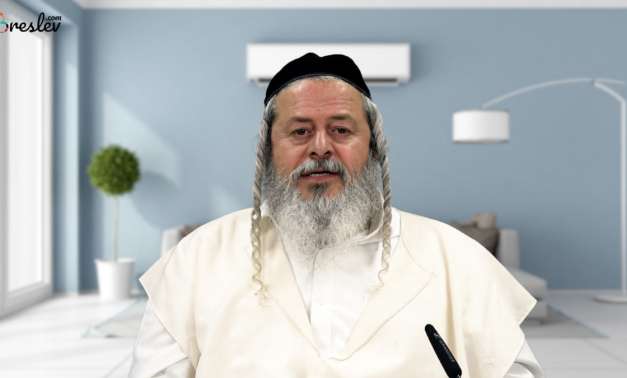
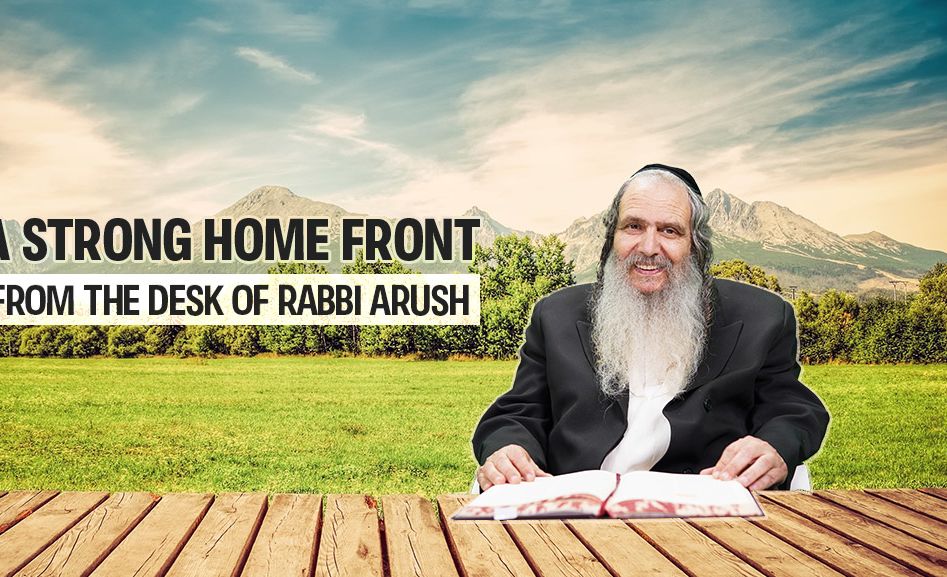
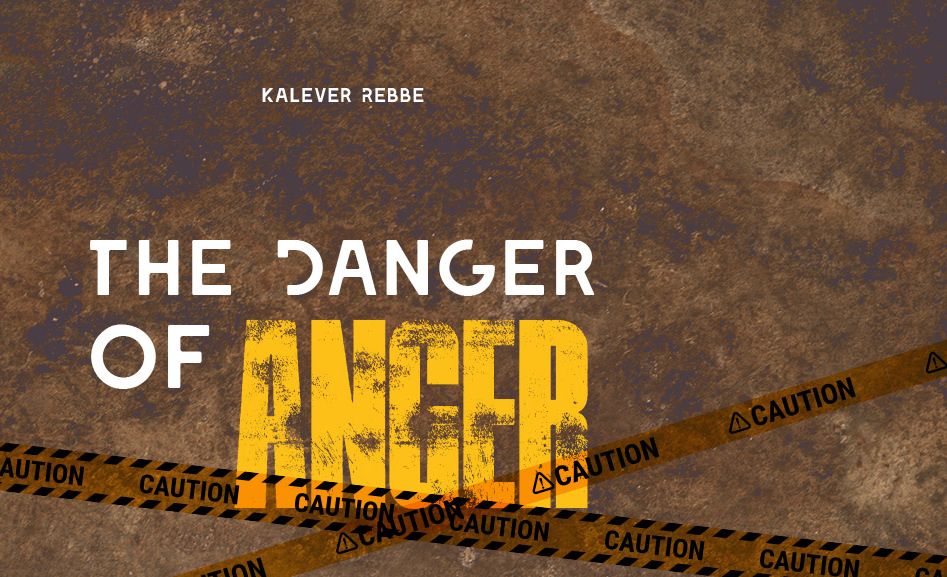
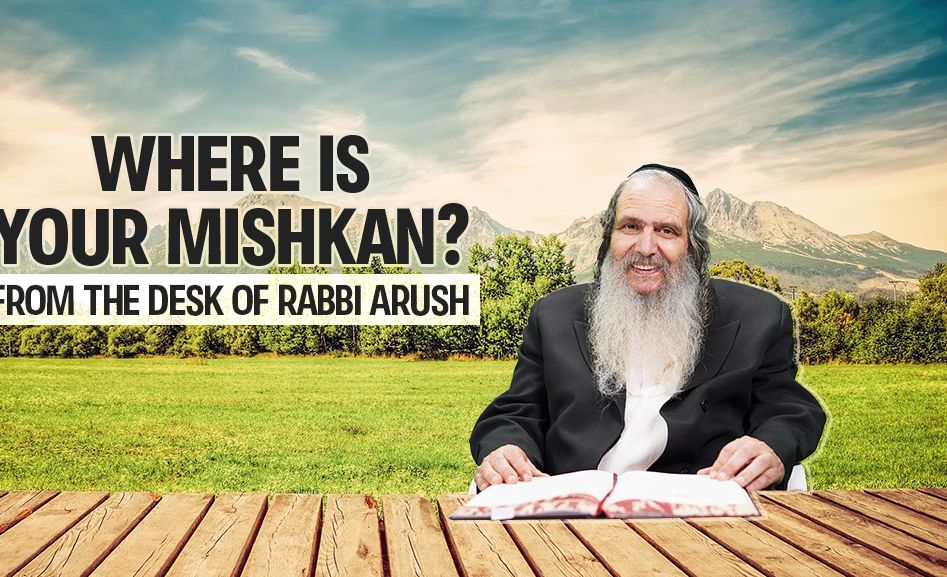

12/06/2011
brilliant I LOVED this article. Thanks!
12/06/2011
I LOVED this article. Thanks!